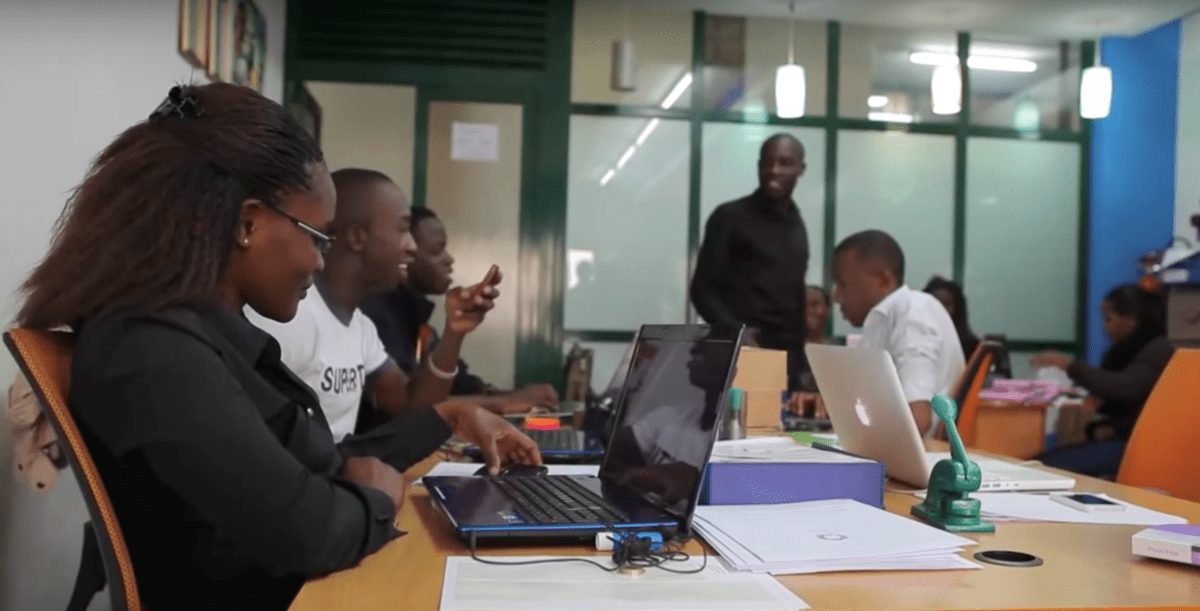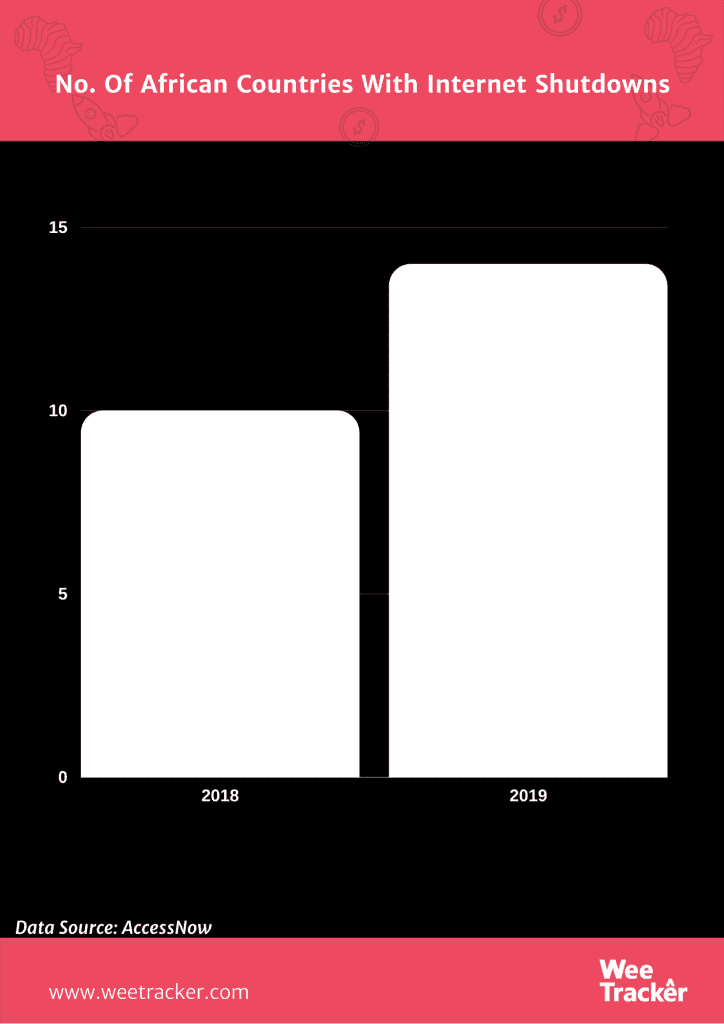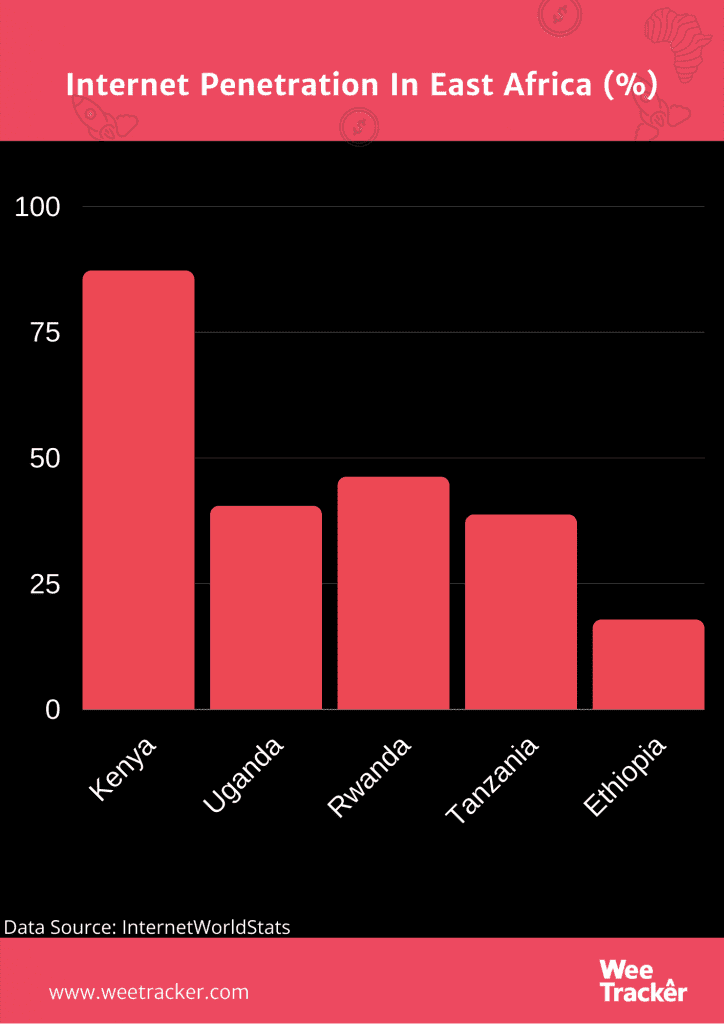Inside The Populous African Country Where Internet Has Been Cut Off 5 Times In 1 Year

In the Horn of Africa lies a rugged, landlocked country split by the Great Rift Valley with archaeological discoveries dating back more than 3 million years. That country is Ethiopia and with a population of 115 million, it is the second-most populous nation in Africa.
In Ethiopia, the internet has been switched off no less than five times in the last 12 months for various reasons. The most recent shutdown happened on June 30 and the country was technically offline for two weeks.
Although internet connectivity was partially restored in the country on Tuesday evening after the latest episode, access to social media platforms like Facebook and Instagram is still impossible without a virtual private network (VPN).
While internet shutdowns are not unheard of in Africa and indeed other parts of the globe, the case in Ethiopia has arguably reached an alarming level where the authorities now seem to be normalising information blackouts as the go-to response for all kinds of problems.

In 2019 alone, Ethiopia had its internet turned off on three different occasions for both bizarre and disputable reasons. This is according to findings from extensive research carried out by Yohannes Eneyew Ayalew, Ph.D. Candidate, Monash University.
The first internet disruption of 2019 was attributed to efforts aimed at protecting the country from cyber-attacks.
Next, the country was taken offline because, apparently, it was the only way to stop school exam questions from leaking over the internet. The third shutdown happened in June 2019 amid reports of a coup attempt targeting the northwestern Amhara regional state.
This year, there have now been at least two such internet blackouts. One took an entire resource-rich province in the western part of Ethiopia offline for three months — from January this year to the end of March.
That internet and telecommunications blackout was connected to an ongoing security crackdown in the area. The top official at the state-controlled internet provider, Ethio-Telecom, said the shutdown had something to do with fighting insecurity in the province.
However, what rarely gets any mention is the fact the blackout also crippled businesses, inconvenienced users, took away the ability of journalists to verify information and confirm human rights violations, and cast a shadow of doubt over the reforms talked up by Prime Minister Abiy Ahmed.
That 3-month internet/telecommunication shutdown actually kept families stranded due to lack of communication, hampered humanitarian services in the region, and contributed to an information blackout that effectively tanked an online campaign to locate students who had been abducted from a local university in January.
As an interesting point, the Ethiopian Prime Minister also won the Nobel Peace Prize last year despite renewed unrest in the country which ultimately led to the most recent internet blackout in June.
This latest episode was sparked by unrest following the assassination of political activist and musician, Hachalu Hundessa, who was quite a powerful voice about the rights of the Oromo people, Ethiopia’s largest ethnic group. That adds up to five different internet shutdowns in Ethiopia in the past one year.
Between 2016 and 2018 when former Prime Minister Hailemariam Desalegn was still in power, the internet was shut down at least three times for reasons bordering on curbing exam malpractice, supporting national security, and suppressing dissent.
With a single state-owned internet provider still enjoying the monopoly of commandeering what is still a closed sector despite recent plans to invite new entrants, internet penetration in Ethiopia is still very low, trailing its regional neighbours by some margin. Internet world Stats puts internet penetration at 17.8 percent in Ethiopia.

This is not helped by the fact that the country seems to always be one feckless order away from going dark. For years, authorities have resorted to this old gambit almost on a whim.
The UN Human Rights Council Resolution of 2016 urges states to observe online rights as human rights. The landmark resolution which has since been adopted affirms that “the same rights that people have offline must also be protected online.”
Yet internet shutdowns are becoming more pervasive and endemic, especially in Africa, despite the huge economic losses that usually accompanied such measures.
Last year, internet shutdowns were more frequent and lasted the longest in Africa. According to Access Now, there were 35 such blackouts with the likes of Chad, Ethiopia, DR Congo, Eritrea, Mauritania, Sudan, and Zimbabwe among the African countries that fully or partially shuttered internet access for more than seven days.
Chad actually recorded a 16-month-long social media blockage. Togolese authorities shut down the entire internet in 2017 and 2018.
According to Top10VPN, an internet-focused group, African economies lost USD 2.13 Bn to internet shutdowns in 2019. That amounts to the GDP of Comoros, Sao Tome & Principe, and Seychelles combined.
As for Ethiopia, it’s estimated that the month-long shutdown in 2016 cost the country USD 8 Mn million. Additionally, over USD 66 Mn was lost during the course of the two-week blackout recorded in 2019 under Abiy whose government is being accused of repressing dissent both offline and online.
Featured Image Courtesy: WorldBankGroup